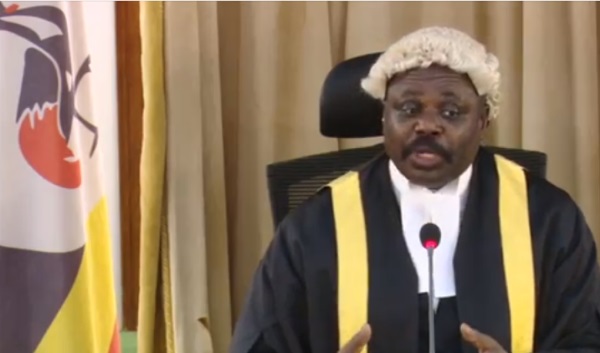On Thursday parliament convened to deliberate on the budget process with the intention of passing the Appropriation Act 2018 which brings a budget of a financial year into existence. “Then we have the Appropriation Bill 2018.” However, the Budget Committee which was expected to deliver its report on the floor of parliament at 4:30 pm did not show up until 7:20 pm because they were reconciling some figures during the appropriation with the Ministry of Finance. During the debate, the Deputy Speaker of Parliament Jacob Oulanyah was not contented with how the figures were matching up which forced him to castigate the Ministry of Finance for not doing enough to prepare for the passing of the budget. “And we waited up to the last time, up to the last day on the law and we started bringing documents that looked like research papers for senior six students. Really, in all fairness; spiral bind documents and you are bringing them to parliament and then eventually you withdrew them.” Said, Jacob Oulanyah – Deputy Speaker of Parliament.
According to the Finance Public Management Act, the deadline to pass the budget was set for the 31st of May. However, the law gives the Speaker of Parliament a window to extend the deadline for 24 hours. This was the basis upon which the Speaker adjourned the house for Friday. On Friday morning, the house passed the Appropriation Bill 2018 with a budget of 32 trillion shillings. “Honorable members, the motion is that the Bill entitled Appropriation Bill 2018 be read for the third time and be passed….” The Deputy Speaker advised the Minister of Finance Maia Kasaija to step up his game during the budget process. “I really communicated yesterday and I don’t want to repeat myself. But there is need we do things in the proper way to avoid this kind of scenarios.” Said, Jacob Oulanyah – Deputy Speaker of Parliament.
Amos Lugolobi the Chairperson of the Budget Committee of Parliament said the public should expect little from the budget since a lot of the money was going to finance the loans that the government had taken on. “The implication is that a huge proportion of this budget actually goes to service debts, it goes on debt redemption, debt repayments, and interest. So we have only about 14 trillion to spare that has to be shared between different sectors and this is where the challenge is.” Said, Amos Lugolobi – Chairperson, Budget Committee of Parliament. The budget came with a number of new taxes which the State Minister of Finance said were not intended to be a burden to Ugandans. “If you see, there is a small increment like the fuel; fuel we have added 100 shillings but we want to re-enforce this money that we will generate to maintain the roads. So there are really tax measures that are focusing on service delivery of our country. And remember taxation is a contribution, paying tax is a contribution to the economy, not a punishment.” Said, David Bahati – State Minister of Finance for Planning. The theme for this year's budget is to lead Uganda into industrialization which the Ministry of Finance officials said is intended to create jobs in the country.

